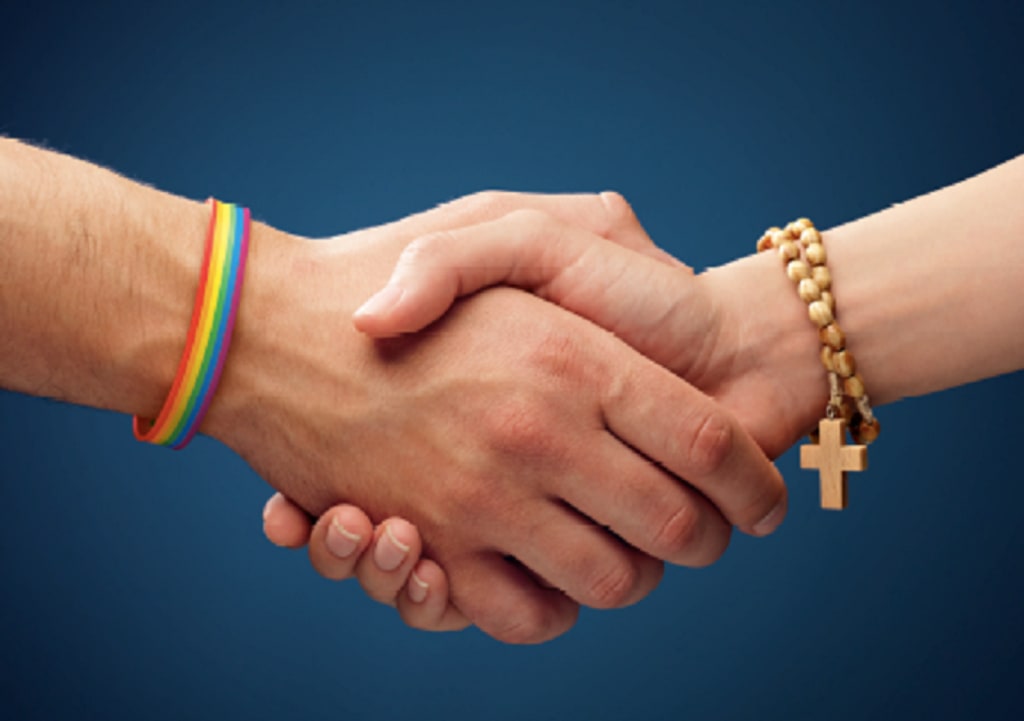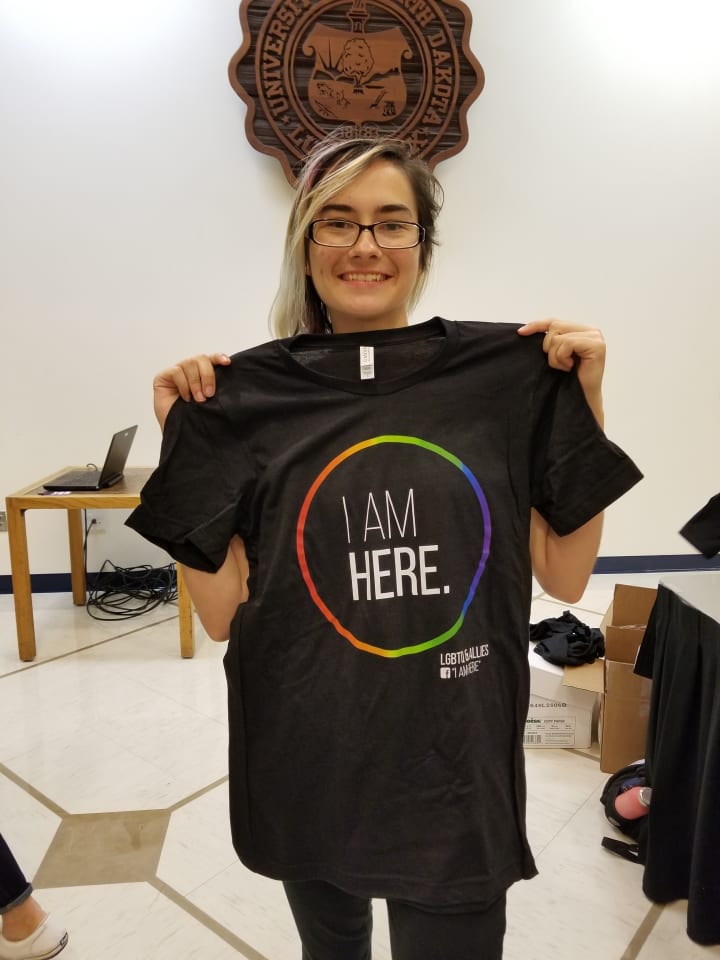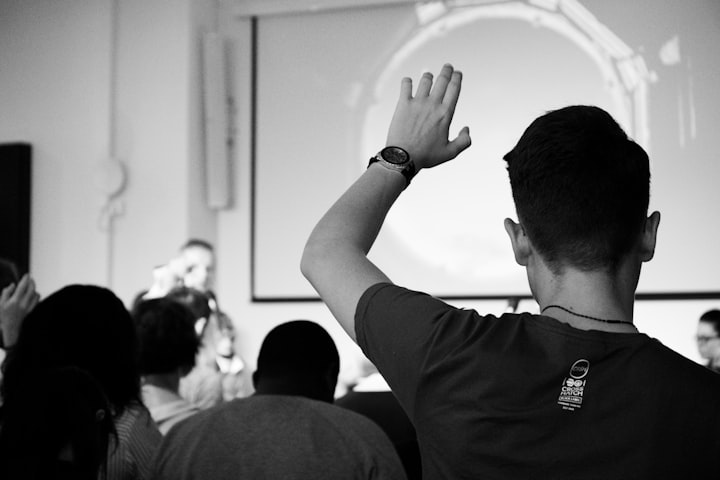From Anti-Religion to Advocate for All
How one conversation changed my view on religion, made me more empathetic, and taught me how to be a better advocate

When we hear prejudice, hate, or stereotyping, we often think about how these issues have impacted minorities. Majority populations are often stereotyped as well. No matter who is the target, such attitudes can hurt. The person who is hurt the most, however, is the one who hates.
My Story

I grew up in an atheist household. My parents made it clear that we could choose our own belief systems and decide our own paths. That being said, religion was rarely discussed. The few discussions we did have, were often negative.
My great-grandmother was a Jehovah Witness for one period of her life. My grandmother told me stories about this time. She had to follow a strict dress code and had little freedom. This was not the life she wanted as a teenager. Her views on Christianity were, understandably, soured. To this day, she is visibly uncomfortable when discussing religion.
Another individual in my family (relationship not mentioned to protect identity) dealt with abuse throughout their childhood. They were raised in a Catholic household and were taught that religious figures were always dependable and trustworthy. Listening to this advice, they went to a chaplain to report the abuse they went through. The chaplain told the abuser about the conversation and refused to report the claims to the authorities. The betrayal only made issues worse.
While I have not had such an extreme experience, I have felt the hate of religious extremists. I am a bisexual woman. This identity was formed in my early high school years. Compared to many individuals in the LGBTQ community, I am fortunate in the sense that my parents are very accepting of my sexuality. However, I quickly learned through the media and experiences with my peers that religion was often used to discriminate against people like myself. Others in my community were being put down, bullied, or even killed simply because of who they loved or identified as.
These were the only connections with religion I had.
The Experience That Changed My View

My freshman year in college, I decided to attend a LGBTQ resource fair. I was shocked to see representatives from a local church in attendance. My first thought was that they were there to protest. However, it quickly became evident that they were friendly and were taking a part in the activities.
One volunteer struck up a conversation with me. Noticing my nervousness, he asked me about my experiences with religion. I explained and he listened patiently. He took the time to get to know me and told me about himself. I was surprised to find out that he held many of the same values as me and was educated in all religions. This was not one of the closed-minded Christians I thought I understood. We discussed LGBTQ issues, Greek and Norse mythologies, and what it meant to be religious.
The volunteers were there to show their support and to learn more about the community so that they could, in return, educate the members of their church. I found out that this church holds many different events throughout the year. Many of these events advocate for civil rights or educate on different issues. Like many churches, they also provided free meals and gave out information on different resources for the homeless.
How This Experience Changed Me

After having a positive experience with figures of the religious community, I found that I did not possess the hate and prejudice I once did against this group. I am able to have open conversations about different beliefs without negativity. Now I even have friends that are deeply religious or authority figures in their church.
Recognizing that not everyone that is Christian or Catholic is bad also is helping me in my career and education. As a psychology major and contracted Army cadet, I hope to become a psychologist for veterans with PTSD. The summer after my freshman year, I attended a PTSD Awareness Day at the Milwaukee VA with my mom. There, we met a Vietnam veteran named Michael Orban. He told us about his experiences at war, his struggles with PTSD, and how religion played a key role in his recovery. I learned so much from him that I am able to apply to my studies. His book (Souled Out: A Memoir of War and Inner Peace) taught me that many individuals rely on their spirituality for stability and sanity. As someone who is hoping to help those with internal conflict, this is something important to understand. These are lessons I would have been closed to, simply because of their association with religion.
Perhaps the most difficult thing these experiences have forced me to do is accept my own biases, prejudices, and weaknesses. You cannot be effective in advocating if you yourself are refusing to listen to and understand others. Recognizing my own thought processes has made it easier to understand why conflicts between groups happen. It also made me realize the importance of experience. In order to advocate against hate, you have to be able to see that it stems from a lack of positive experiences. You have to provide a positive experience - not give into anger and reinforce those negative stereotypes. Recognize that your stereotypes will always marginalize the individual. They will always blind you to the similarities between two groups and keep you from reaching a solution.
Giving up my negative beliefs about religion did not erase my identity. I am still atheist. I am still bisexual. I am still me. Giving up my negative beliefs caused me to be more open minded, more educated, and more accepting. It is important that we recognize how our experiences shape us. Stereotyping always leaves out a big part of the story.
A note to my readers...
Thank you for taking the time to read about my experiences. We are living in a turbulent time with COVID-19 and #blacklivesmatter protests. I hope my story allows you to recognize how you can be a better advocate for those in need and to see that people can change.
Stay safe. Stay informed. Stay strong.
All my love and support,
Lorraine Woiak
About the Creator
Lorraine Woiak
I am a psychology and music major at the University of North Dakota. As a part of the Army ROTC program, I am working towards a career as a military psychologist.





Comments
There are no comments for this story
Be the first to respond and start the conversation.